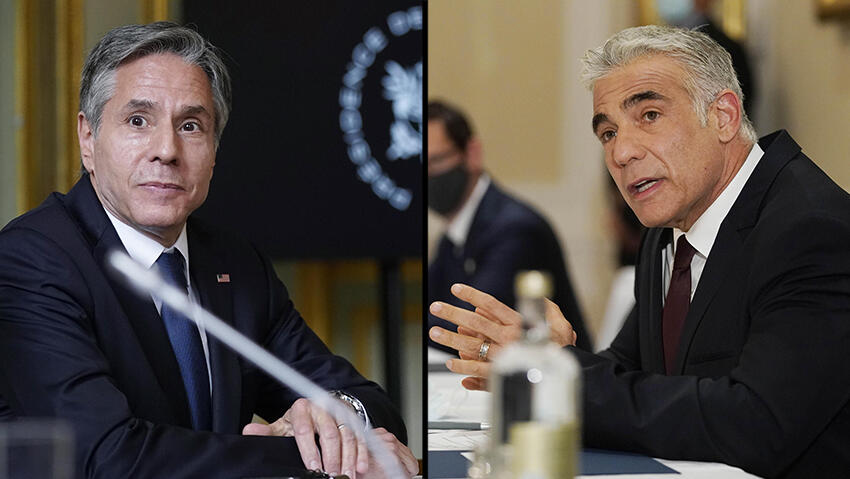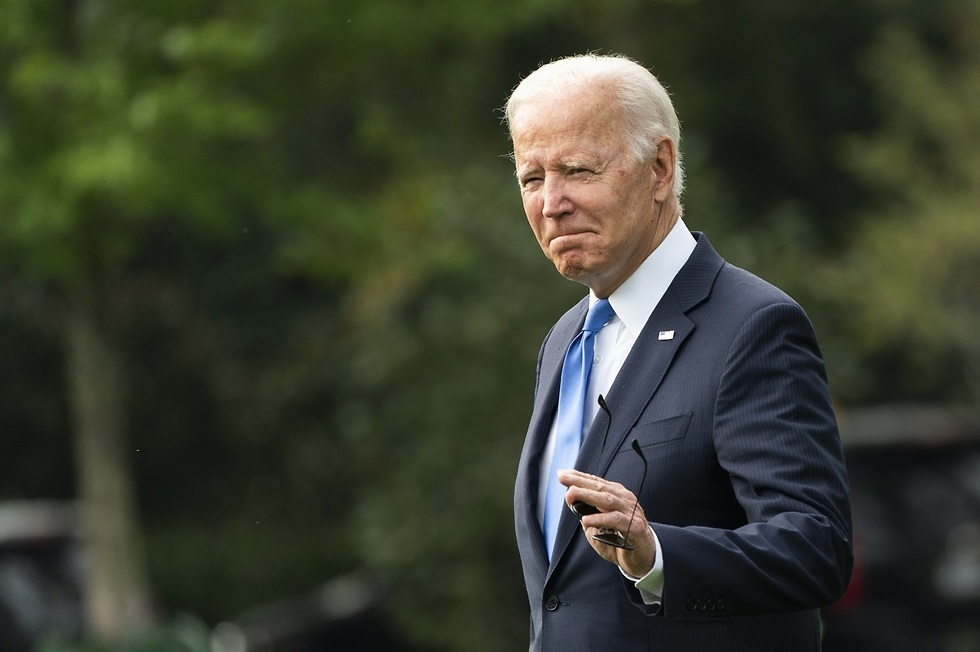Getting your Trinity Audio player ready...
A decision by the United States to reopen its consulate in Jerusalem is dividing Israeli lawmakers, while the delay in opening its doors is upsetting the Palestinian leadership.
The Biden administration still insists on reopening the Jerusalem consulate, while facing fierce resistance from Israel over the decision, especially from the right wing, which says that the decision will lead to the collapse of Israel’s fragile coalition government.
Foreign Minister Yair Lapid agreed to reopen the U.S. Consulate in Jerusalem during his meetings last week in Washington with U.S. Secretary of State Antony Blinken, despite the fact that Prime Minister Naftali Bennett has expressed his strong opposition to the reopening of the American diplomatic mission, according to Israeli media.
Israeli journalist-turned-political-analyst Eli Nissan told says that the Israeli position is a rejection of the decision and a demand not to open an American consulate in Jerusalem.
“In the view of any government headed by the Likud, and even the current government headed by Bennett and Lapid, the issue of reopening the consulate is practically agreeing to a division of the city. Therefore, there are many discussions between Israel and the United States on this issue,” he explained.
Nissan says the subject is at the heart of the confrontation between the U.S. and Israeli governments, adding that reopening the consulate may lead to the disintegration of the Israeli government.
“The [Ra'am] and the left-wing Meretz party support the reopening, while the right rejects this step, and that may bring an end to the fragile Israeli government coalition,” he said.
However, Nissan says Washington could wait until later in October before it makes a final decision, when the important issue of passing a budget is settled in Israel. If a new budget is not passed, the government will automatically dissolve and the country will go to new elections.
“The matter may be postponed until after the 25th of October, when the state budget is approved and ratified because non-ratification of the budget will lead to the government’s disintegration. Let’s wait and then we will see the government’s position,” he said.
Justice Minister Gideon Saar, during a recent public conference, voiced his opposition to Israel allowing the consulate to reopen even if the Biden administration pushed for it. “I spoke with [Prime Minister Naftali Bennett] a couple of times on the issue. We are on the same page, and we don’t see differently,” Saar said, adding that “someone said it’s an electoral commitment. But for us, it’s a generation’s commitment. We will not compromise on this.”
Blinken restated Washington’s position last week during a news conference with Lapid, saying that the U.S. would reopen the Jerusalem consulate that traditionally engaged with the Palestinians, but analysts argue that the issue poses a dilemma for the Israeli government.
Washington’s fear is that reopening its diplomatic mission may lead to the weakening or even the end of the current coalition government headed by Naftali Bennett.
Bennett, head of the small, right-wing Yamina party, formed a coalition government in June that is made up of centrist, left-wing and Arab parties, all united in their goal of throwing long-serving Prime Minister Benjamin Netanyahu out of office.
Bennett, who is in favor of the expansion of settlements in the West Bank — which are considered illegal under international law, has repeatedly said he is against Palestinian statehood.
Nissan says the issue is so important and sensitive to Israeli politicians that Nir Barkat, a member of Knesset and a top contender to replace Netanyahu as leader of the right-wing Likud party, proposed a bill in July that sought to bar countries from creating diplomatic missions in Jerusalem that are not missions to Israel. Barkat traveled to the U.S. in July for a meeting with lawmakers to discuss the issue.
“Likud MK Barkat made a private visit to the United States to persuade members of Congress not to allow the consulate to reopen,” Nissan said.
Ahmad Rafiq Awad, president of the Center for Jerusalem Studies at Al-Quds University, says that there is “disappointment” among Palestinians over the lack of movement on the American side, and they have “lower expectations” now of the Biden administration.
“The Palestinian Authority and its leadership counted on the current U.S. administration and the Democratic Party, as it considers President Joe Biden the person who has rehabilitated the traditional American policy. But, until now, Biden’s policy has not received enthusiasm from the Palestinians,” he said.
Rafiq Awad says if the U.S. doesn’t follow through on its promise to reopen the consulate, it will further risk alienating the Palestinians.
“What we want is to link words with deeds. Until now, the U.S. administration has not done so,” says Rafiq Awad, adding, “we, as Palestinians, feel that there is great reluctance toward the two-state solution by the Biden administration, and the creation of an environment and conditions for this.”
The Palestinian leadership had high hopes when Biden won the election, after feeling that former president Donald Trump gave absolute support to Israel and ignored the Palestinians.
“The Biden administration did not have the courage needed, and it did not live up to the hope that the Palestinians had for this administration. Not opening the consulate gives the impression that the U.S. administration is not serious and acquiesced to Israeli pressure,” Rafiq Awad said.
5 View gallery


The Walls of Jerusalem's Old City lit up with the flags of the U.S., Israel in honor of the moving of the U.S. embassy to Jerusalem
(Photo: AFP)
In late 2017, Trump officially recognized Jerusalem as the capital of Israel and ordered the U.S. embassy in Tel Aviv to move to Jerusalem in 2018, breaking with decades of U.S. foreign policy adopted by previous successive administrations.
An American diplomatic mission that deals solely with the Palestinians carries deep symbolic significance, as Palestinians say it recognizes their right to have an independent state in the West Bank and Gaza with East Jerusalem as its capital.
The first U.S. consul to Jerusalem was appointed by President John Tyler in 1844.





